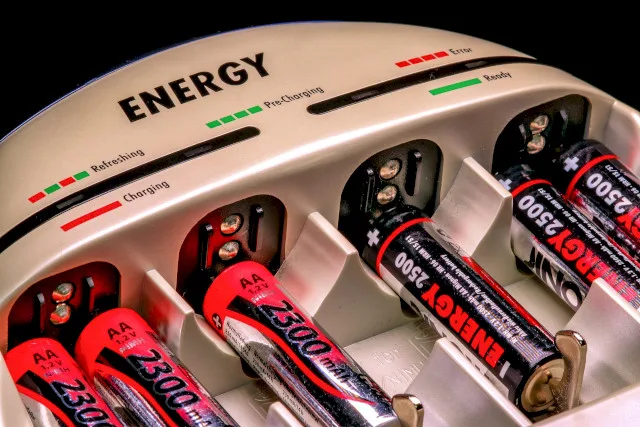
Introduction
Batteries are one of the most commonly used household items, but they can also be hazardous to the environment. In this article we'll discuss how to properly dispose of your used batteries.
How to dispose of used batteries
- If you have a battery-recycling program at your place of work, use it!
- If you're not sure if your workplace has recycling bins, find out by calling them or emailing them. You can also check with local government agencies if they have information about how to dispose of used batteries in the area (e.g., fire departments).
In general, most standard household batteries can be disposed of in your regular Trash.
In general, most standard household batteries can be disposed of in your regular Trash. However, it is important to note that there are some types of batteries that cannot be recycled or reused safely. These include:
- Alkaline (non-rechargeable)
- Nickel Metal Hydride (NiMH)
- Lithium Ion (LiIon)
What about car batteries?
If you have a car battery, it's important to know that not all auto parts stores will accept it. Some may only take used car batteries with no acid in them, while others may not want any type of lead-based products. Regardless of where you live or what kind of business you frequent, there are some guidelines for properly disposing of your old battery:
- If your local auto parts store accepts car batteries (or even if they don't), there are several options available for recycling them:
- Auto salvage yards can take them away on their own truck and recycle them with other types of automotive waste. They'll also be able to tell whether or not the battery is still usable by testing its voltage level after charging up again; this could mean that it still has life left in it!
- Recycling centers often offer dropoff services where customers bring in their old batteries at no cost; these places may also give advice on how best to dispose off used ones instead
What about rechargeable batteries?
Rechargeable batteries are different from other types of batteries. They contain heavy metals and should not be thrown in the trash or recycled. Rechargeable batteries can be disposed of properly at most locations that accept these types of items, but it’s important to check first before tossing them away!
What about button cell batteries?
- Rechargeable batteries should be recycled.
- Button cell batteries can be recycled, but not in regular trash.
Button cell batteries are small and can be swallowed by children; if you want to keep your kids safe from dangerous hazards, make sure that you recycle your button cells!
Can other types of batteries be recycled?
Yes! There are many types of batteries that can be recycled. However, lithium ion batteries (Li-Ion) and nickel cadmium (NiCd) are the most commonly recycled batteries in the United States. They're also the most toxic and should not be disposed of with other household waste at your curbside collection bin or drop-off location.
Nickel metal hydride (NiMH) and lead acid rechargeable alkaline cells can be safely recycled at your local recycling center by placing them into a plastic bag with holes cut in it to allow air flow through the container while you wait for pickup time—don't leave them outdoors where they could get buried underground as stray items go!
Can I make money by recycling batteries?
The answer is yes. If you have the right type of battery, it's possible to make money from recycling.
The most common types of batteries are lithium-ion and alkaline batteries. Lithium-ion batteries can be recycled for a profit because they contain valuable metals such as cobalt, nickel and aluminum; these metals are used in various industries such as aerospace engineering and medical devices. Alkaline batteries also contain precious metals like potassium hydroxide (KOH), which are used to make fertilizers and detergents at industrial sites across Canada.
Learn how to properly dispose of used batteries.
If you're ready to get started, there are a few things to keep in mind when disposing of your old batteries. First, make sure you dispose of them properly. The best way to do this is by taking them to a recycling center or drop-off site where they can be properly recycled and turned into new batteries for people who need them.
If you don't have access to one of these places or don't feel like driving far away from home, then checking out your local hardware store may be another option for getting rid of your used batteries—but again, always recycle!
Conclusion
By now, you should be familiar with the proper way to dispose of your used batteries. There are some instances when you may need to take special precautions or handle them differently, though. For example, if you have a car battery and want to dispose of it properly without damaging your vehicle or getting fined by law enforcement officers because you didn't follow their instructions on properly disposing of batteries.



